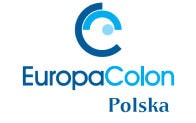A Prospective Study for the Assessment of Recurrence Risk in Stage II Colon Cancer Patients Using ColoPrint
NCT00903565
Observational
Unknown status
PARSC
The aim of this study is to enroll 785 eligible stage II colon cancer patients in order to validate the performance of ColoPrint in estimating 3-year relapse rate. Secondary objectives include comparing the objective risk assessment results from the prognostic profile (ColoPrint) to both the risk assessment based on the ASCO criteria, as well as the Investigator's independent assessment. As this is the first prospective study of ColoPrint, this study will also address the logistics and quality assurance of using ColoPrint in clinical practice. Patient treatment is at the discretion of the physician, adhering to National Comprehensive Cancer Network (NCCN)-approved regimens or a recognized alternative. The enrollment period will be 6 years. It is expected that 1800 to 2400 patients will be enrolled in order to obtain 785 analysable stage II samples from eligible patients. Approximately 25-35 clinical sites will be involved worldwide. The statistical analysis will be performed by Agendia and an independent research institute or hospital. Study Design Extension Study: This will be a prospective study to measure the impact of ColoPrint on adjuvant treatment in stage 2 colorectal cancer patients. After surgery the tumor sample will be shipped in RNA Retain to Agendia. The online Clinical Report Form (CRF) 0 will be completed to document if the patient fulfils the inclusion criteria. Baseline clinical data and the patient and physician chemotherapy intention, patient's perceived recurrence risk and decisional conflict without knowing the ColoPrint result will be entered in CRF 1. After completion of CRF1 the ColoPrint result is released. CRF2 will be completed after the final treatment decision has been made. This CRF will capture the patient and physician chemotherapy intention, patient's perceived recurrence risk and decisional conflict, impact of ColoPrint and the actual treatment the patient will receive. CRF3 will be completed 12 months after enrolment and will capture the patient status, patient's perceived recurrence risk and decisional conflict. CRF4 and 5 will be completed 3 and 5 years after surgery and will capture the patient status. A sample size of 210 stage 2 colon cancer patients is required to detect a 10% overall treatment change (5% significance and 90% power). Reporting of the Results: Blinded Study; The ColoPrint results will not be reported to the physician and/or patient at the time of enrolment. All samples will be stored in a freezer until 550-575 eligible stage II patients have been enrolled. Samples will then be analyzed in one batch in a blinded fashion from the clinical results. Extension Study; The ColoPrint results will be reported to the physician and patient after CRF1 has been completed.
Sep 30,2008
All
18 Years
N/A
18 Years
N/A
1200

